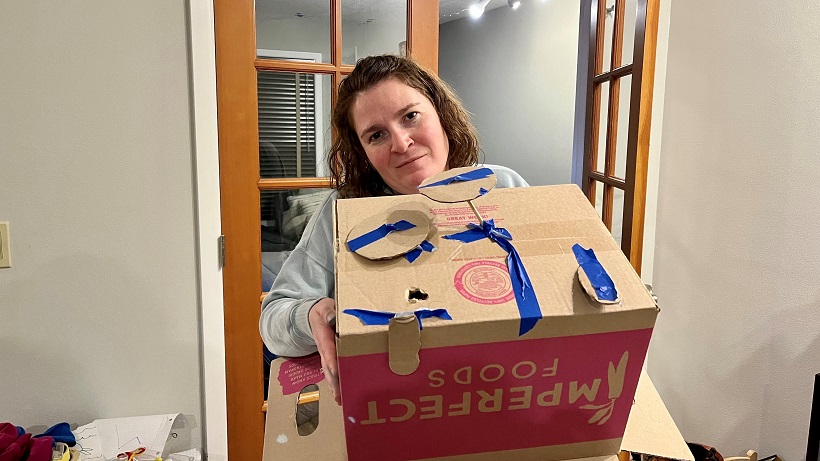This isn’t the first time I’ve written about the chaotic mess that is my house. And I know I’m not the first parent to be overwhelmed by the sheer amount of stuff we have at home. We organize, and we clean, and we recycle, but things still pile up. And while I appreciate the effort my children make to repurpose something rather than throw it out, our house feels like there are items everywhere largely because of their need and desire to take loose parts and found objects like shoe boxes, paper plates, coffee canisters, and countless other objects and create projects with them. These containers could be a train or a drum kit. These empty toilet paper rolls can be binoculars. My children believe that every item has a purpose for which it was originally intended, and a secondary or tertiary purpose only they can envision. I do love their creativity, but sometimes I just wish I could see my floor and countertops again.

Their ability to see potential in the world around them is one that is inherently Jewish and expressed in our Torah portion this week. This week we read Parshat Terumah, which reminds us of the importance of giving gifts just because we want to. The parshah focuses mainly on the building of the Tabernacle, the Mishkan, including what the ark and decorative pieces will look like. The instructions are specific, including what materials should be used, exactly how big each piece should be, and how the floor plan should look when the building is completed.
Specifically, the Israelites are asked to create a wooden surface overlaid with gold to place special breads on, an ark to place the tablets in, and a menorah to light. Each of these items serves a purpose for the rituals God is instructing. On their own, they are simply objects: a table, a closet, and a lamp. However, used for the reasons God describes, they become sacred.
The table, with its beautiful cover, is a sacred space for offering, and for connecting our physical and spiritual needs. The ark is a private space, representing the need for introspection. The menorah stands to remind us of the light we can share when we come together in community. This week’s Torah portion is a wonderful reminder that just because something may serve an ordinary function, doesn’t mean it can’t also have a holy (or artistic) purpose too.



